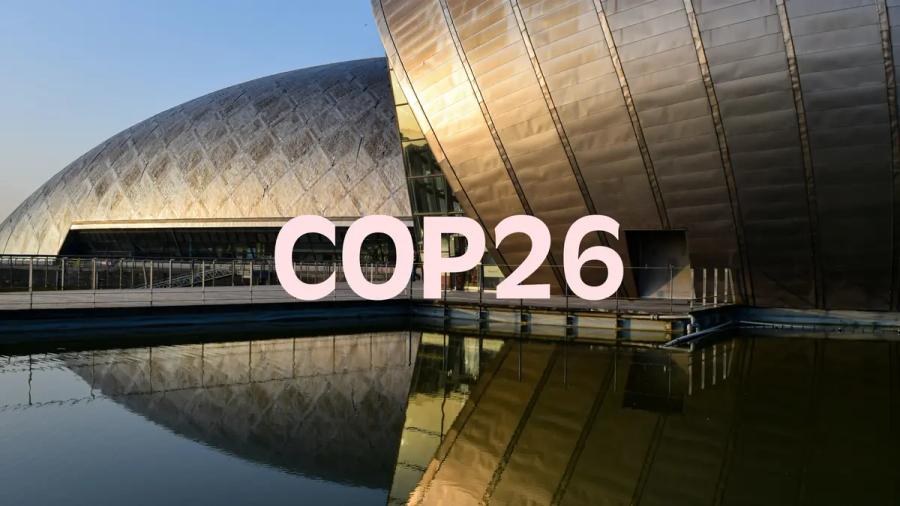The biggest news to come out of COP26
October 13, 2021
News
Drawing 25,000 delegates from 200 countries, this year’s COP26 summit in Glasgow, UK is the largest climate change conference to be held since the talks that first formed the Paris Agreement back in 2015.
With new research from Climate Action Tracker suggesting existing national plans would lead to a 2.4°C of global temperature rise, COP26 needed to deliver ambitiously to ensure any hope of rejoining a 1.5°C pathway.
So has it? Here’s a quick run-through of the biggest news to come out of COP26—from new pledges and promises to evasions and omissions.
The global methane pledge
As a potent greenhouse gas that accounts for one-third of all human-generated global warming, solving methane emissions is critical for addressing climate change. Currently, 108 nations have signed up to a scheme to reduce methane emissions by 30% between 2020 and 2030. Big emitters, including the US and EU are signatories, although several other crucial players aren’t—including Russia and India. China has stated it will make its own national methane plan.
Ending deforestation
137 leaders—representing about 85% of the world’s forests—have pledged to stop forest loss and land degradation by 2030. Similar pledges have already been made, but this one is seen as significant for the participation of Brazil and China, as well as a hefty commitment of £14 billion in funds. It remains to be seen how this commitment will be practically monitored and enforced—some members are already weakening their stance—but if upheld, this pledge represents one of the biggest COP26 wins.
Retiring coal
As the single biggest contributor to climate change, solving coal is critical. Yet coal has been one of the hardest areas to secure agreement on at this year’s COP. Some 46 countries have pledged to phase out coal power across the 2030s and 2040s, with many also promising to stop the construction of new coal plants. Critically, China—the world’s biggest use of coal—has not signed up, and is again suggesting it will create its own national plan for phasing out coal.
Phasing out oil and gas
Commitments to tackle two other fossil fuel elephants in the room has also gathered pace. Led by Costa Rica and Denmark, 11 national and regional governments have joined the Beyond Oil & Gas Alliance agreeing to retire the production of both. As one of the first initiatives of its kind, this cooperation brings welcome attention to fossil fuels that have historically received little governmental action. However, participation from some of the world’s biggest oil and gas producers is notably absent.
Zero-emissions transport
Some 31 countries have pledged to accelerate the movement from fossil fuel-powered cars to clean electric ones. A few automotive heavyweights, including Ford and Mercedes, also pledged their commitment. While promising, this initiative will require the world’s biggest vehicle-manufacturing countries—namely Germany, Japan, the US, China, and France—to sign up in order to have real impact.
Green investment
Highlighting the importance of action from private companies in addressing the climate crisis, 450 financial organisations have agreed to invest in clean technologies like renewable energy, and divest from industries that depend on fossil fuels. Given that the fossil fuel industry benefits from subsidies of $11m every minute, cleaning up fossil-fuel finance will require a much bigger commitment from governments and industry.
US-China emissions deal
Much to everyone’s surprise, the world’s two biggest emitters pledged to act together in a joint declaration. This pledge details a common commitment to keep global temperature rise below 2°C, cut methane, reduce deforestation, and accelerate decarbonisation. Calling for “concrete and pragmatic” regulation to ensure the above, the countries laid out a plan to revive a working group to meet regularly and ensure mutual progress. This commitment will be decisive in deciding whether the world is actually able to realise a 1.5°C pathway.
The COP26 deal
This overarching document is the most important one to come out of COP26. It forms the backbone for an agreement that will set the agenda for climate change for the whole of the 2020s. Among other resolutions, this text compels nations to set more ambitious emissions-reducing targets by the end of 2022, and increase climate finance beyond $100bn a year to support vulnerable nations. It’s been heavily criticised for not being ambitious enough, but final negotiations and tweaks are still in progress, so only time will tell…
Looking for ways to contribute?
Sign up for a free WeCHOOOSE account to start directly supporting high-impact climate projects by compensating for your unavoidable carbon footprint.
From Sustainable Aviation Fuel and nature-based solutions to carbon removal, CHOOOSE offers updated access to diverse climate solutions from which you can select to power your organization's Carbon Program.
You can also offset your travel emissions with SAF through Heathrow Airport.

More news:
POLICIES
PRODUCT